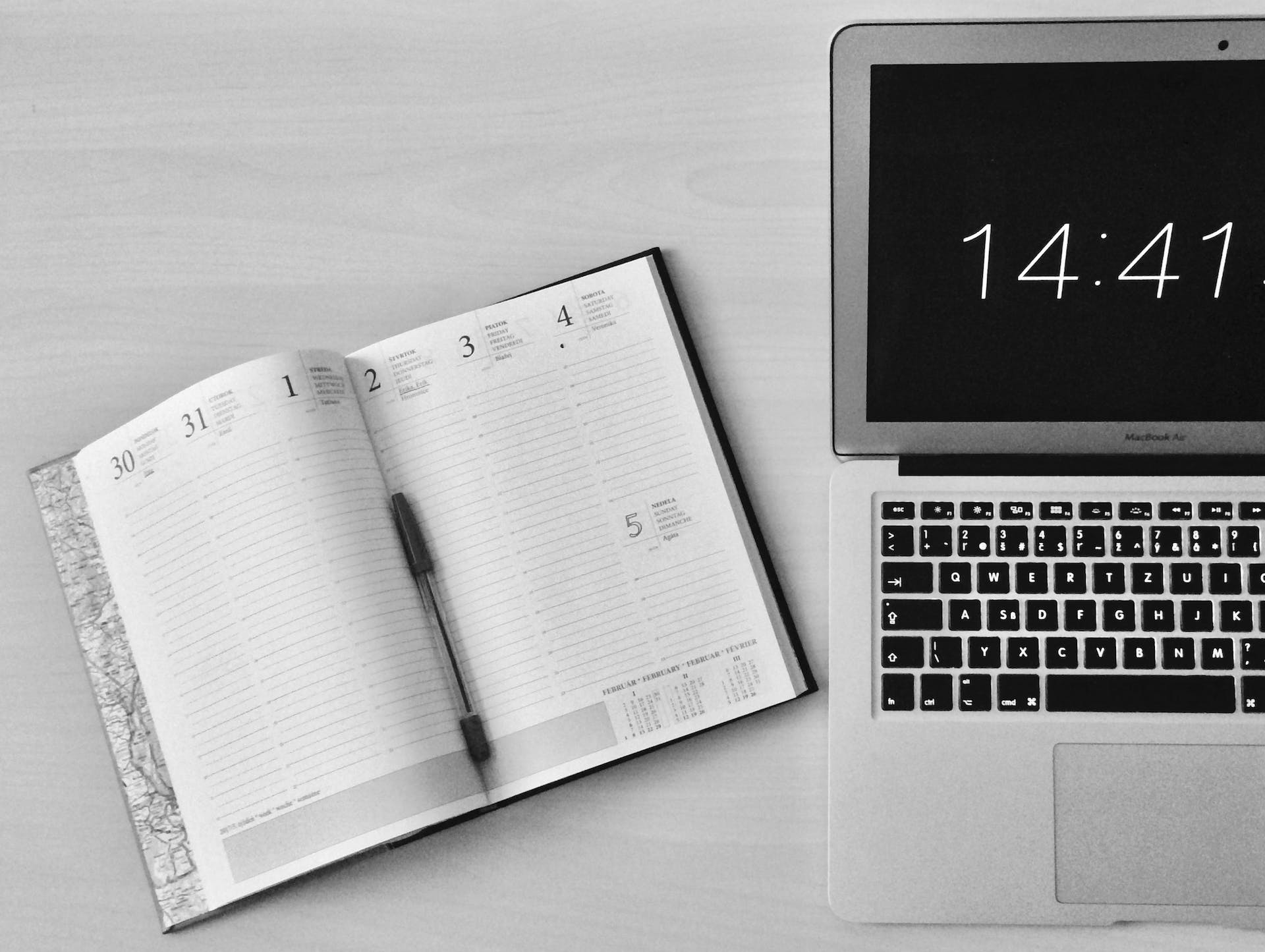

Managing everyday personal and professional tasks requires finesse and skill. From remembering that upcoming meeting to finding time to go grocery shopping, planning your activities can feel overwhelming. Perhaps you’re forgetting appointments or double booking time, or maybe you just don’t have time for your family or yourself. You can work through these issues and ease your mind using online calendars like Calendar, Microsoft Calendar, or Google Calendar.
Calendars provide a task management system that is well-organized and optimal for everyday use. You can create and follow a schedule, increasing your productivity and ensuring you have time for self-care. If you want to improve your task management abilities, you can benefit from using a calendar to schedule your day. Here’s how:
Define Your Goals
Setting goals is not just something you do at the first of the new year, although that’s a necessary time to reflect. It should be done throughout the year as you determine what needs to be worked on in your life. Once you determine your goals, you should set daily, weekly, or monthly objectives.
This lets you fit actionable tasks into your calendar and break down long-term goals into smaller, reasonable chunks. In addition to storing your goals in your calendar, write them down in a notebook. This way, you can refer to them when it’s time to revisit and revise your objectives.
Prioritize Your Tasks
It’s crucial to organize tasks by priority. You don’t want to spend a lot of time on a minor task while leaving little time for a major responsibility. Prioritizing your tasks enables you to complete various tasks in the right order, spending the best amount of time on each. To plan ahead, you’ll need to consider when something’s due, the difficulty in completing it, and its importance.
You could assign a color system to your tasks depending on if they are high-, medium-, or low-priority. This can help you visualize the importance of your daily activities, keeping you responsible for everything on your to-do list. If you really struggle with prioritizing, the urgency-importance matrix, also known as the Eisenhower Matrix, can be a helpful tool.
Strategically Schedule Your Day
Once you’ve prioritized your to-do list, use your calendar to schedule your tasks throughout the day. Check your calendar for appointments or meetings that are already in place to avoid double-booking yourself. Then, arrange your remaining tasks throughout the day. Use time blocking to divide your day, week, or month into different activities. Be sure to set free time in case something important comes up or to give you some downtime during the day.
Once you’ve scheduled everything, you’ll want to go through and analyze your calendar. Determine if every task is necessary or if anything can be appropriately delegated. Check and make sure you’ve assigned the right amount of time for each task. Be sure you haven’t over- or under-estimating how long it will take to complete each one. Perhaps you don’t need to finish a task in a day. Rather, you can work some on it and finish it later in the week when you have more time available. Reviewing your calendar allows you to make adjustments and allocate your time better.
Utilize Your Calendar
You can use your calendar beyond these steps to enter individual tasks and goals in different ways. Utilize these other time and task management methods to make the most of your calendar as a tool.
Make a To-Do List
An effective to-do list requires determining what you really expect to get done during the hours available to you. It’s not about simply writing down a never-ending list of wishful thinking. Only write down things you plan to do that day and save lesser priority items for another day. Use “if-then” planning when writing your to-do list. For instance, “If the expense reports are in, I will review them.”
This process helps you figure out what you need to do and when you will do it. You’ll also want to prioritize tasks and mark the most important ones as a “must-do.” It’s also helpful to create a list of items you completed. You can see your progress and remember where you are in your to-do list.
Schedule Focus Time
You may want to create focus time events when scheduling time on your calendar. This is especially true for those tasks that are high priority. Online calendars allow scheduling focus time to reduce distractions while you work. You can automatically decline meetings during that period and mute chat notifications. This will help you concentrate on the task at hand.
During focus time, it’s wise just to have the programs or browser windows open that you need. Doing so will limit the likelihood that you’ll check your email “real quick,” ending up getting distracted by an unrelated task. It’s also wise to have a signal to coworkers that you are in focus mode. You can use a public calendar, post a note on your door that says, “Do not disturb,” or update your Slack status. Limiting unnecessary distractions will make you do your best work and complete the task faster.
Try the Pomodoro Technique
What does the Italian word for tomato have to do with task management? More than you might realize. The Pomodoro technique is a time management method based on segmented work and break times. The technique’s creator, Francesco Cirillo, got its name because it used a tomato-shaped kitchen timer.
The technique typically involves working for about half an hour without distraction and then taking a five-minute break. After about four consecutive work intervals, which are called pomodoros, you should take a longer extended break, anywhere from 15 to 30 minutes. But you don’t need to rely on a kitchen timer. You can set up your time periods in your daily calendar and follow along throughout the day.
Set Up Reward Time
Even if you don’t follow the Pomodoro technique, you should still include reward time in your daily schedule. Working eight hours without breaks is not in your best interest. You’ll tend to get burnt out. Reward time is exactly as it sounds: time rewarded for completing a task or working on a project.
Perhaps you don’t need a break, but there are good reasons to schedule reward time. Firstly, your body needs to get up and move. You cannot sit behind a desk all day and remain healthy. Also, breaks prevent decision fatigue and restore motivation. Taking reward time increases creativity and productivity, and activities like meditation can help consolidate memories and improve learning.
Effective Task Management
Effective task management is a critical skill for navigating the demands of both your personal and professional life. The use of online calendars helps streamline daily activities and provides a structured approach to time management. Adjusting schedules allows for greater flexibility and optimization of available time. Utilizing a calendar ensures that every task is approached with the right level of attention and commitment.
Jump into the various ways calendars can be utilized beyond mere scheduling, contributing to enhanced productivity and overall well-being. By incorporating these methods into your routine, you can meet your immediate goals and sustain a healthy work-life balance. Leveraging calendars as tools for task management allows you to navigate the complexities of your daily life easily.
Featured Image Credit: Photo by Michaela; Pexels











Angela Ruth
My name is Angela Ruth. I aim to help you learn how Calendar can help you manage your time, boost your productivity, and spend your days working on things that matter, both personally and professionally. Here's to improving all your calendars and becoming the person you are destined to become!